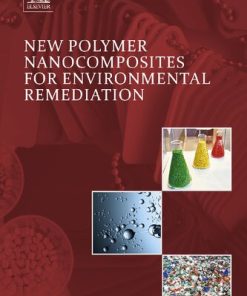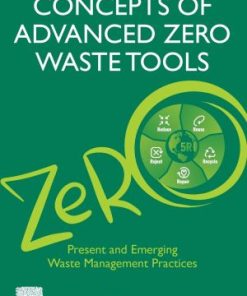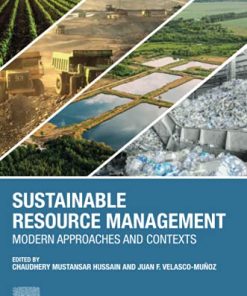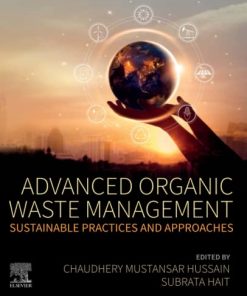Emerging Trends to Approaching Zero Waste: Environmental and Social Perspectives 1st Edition
$50.00 Original price was: $50.00.$25.00Current price is: $25.00.
Emerging Trends to Approaching Zero Waste: Environmental and Social Perspectives 1st Edition – Ebook Instant Download/Delivery ISBN(s): 9780323854030,0323854036,9780323854047, 0323854044
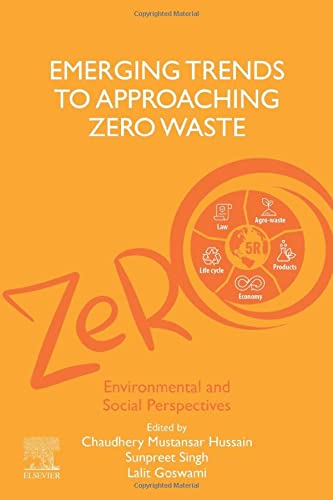
Product detail:
- ISBN 10: 0323854044
- ISBN 13: 9780323854047
- Author: Sunpreet Singh PhD, Lalit Goswami, Chaudhery Mustansar Hussain PhD
Emerging Trends to Approaching Zero Waste: Environmental and Social Perspectives thoroughly examines the impact of various technological innovations, current guidelines and social awareness on the reduction of waste, with the ultimate aim of achieving the zero-waste target. Insights in the book will help users adopt the best possible methodologies at grass-root levels and show how modern societal procedures are becoming sustainable, with a goal of zero waste. It comprehensively discusses the scientific contributions of the environmental and social sector, along with the tools and technologies available for achieving the zero-waste targets.
This book is the first step toward understanding state-of-the-art practices in making the zero-waste goal a reality. It will be especially beneficial to researchers, academics, upper-level students, waste managers, engineers and managers of industries researching or hoping to implement zero-waste techniques.
Table of contents:
- Chapter 1: Emerging trends of zero waste in the built environment and a paradigm shift toward sustainability
- Chapter 2: Indian indigenous knowledge system: Sustainable approach toward waste management
- Chapter 3: Leveraging the potential of aquaponics for urban sustainability
- Chapter 4: Waste management to zero waste: Global perspectives and review of Indian law and policy
- Chapter 5: Recent evolution in green technologies for effective valorization of food and agricultural wastes
- Chapter 6: Catalytic remediation of chlorinated organic compounds (COCs) in wastewater
- Chapter 7: Fidelity of NGOs toward zero waste in India: A conceptual framework for sustainability
- Chapter 8: Sorption of pharmaceutical and personal care products from the wastewater by carbonaceous materials
- Chapter 9: Social factors influencing household waste management
- Chapter 10: Waste management in fashion and textile industry: Recent advances and trends, life-cycle assessment, and circular economy
- Chapter 11: Techno-economic feasibility and hurdles on agricultural waste management
- Chapter 12: Ammonia as a carrier of renewable energy: Recent progress of ammonia synthesis by homogeneous catalysts, heterogeneous catalysts, and electrochemical method
- Chapter 13: Solid waste management through the concept of zero waste
- Chapter 14: Economics and market of wastes
- Chapter 15: Roadmap from microalgae to biorefinery: A circular bioeconomy approach
- Chapter 16: Recent advances in melanoidin removal from wastewater: Sources, properties, toxicity, and remediation strategies
People also search:
You may also like…
Chemistry - Biochemistry
Technique - Nanotechnology
Engineering - Environmental
Chemistry - Analytical Chemistry
Engineering - Environmental
Advanced Organic Waste Management: Sustainable Practices and Approaches





